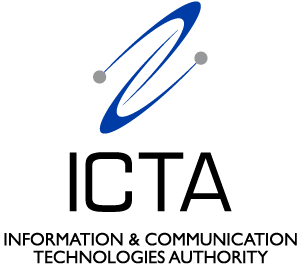Avoid falling prey to scam calls and SMS
- Home
- Avoid falling prey to scam calls and SMS
Useful tips from the ICT Authority to avoid falling prey to scam calls and SMS
The Authority wishes to draw the attention of the public to the dangers of fraudulent calls and SMS. The key word here is vigilance to avoid falling prey to these scams.
What are scam calls and text messages?
Call and SMS scams are the common name for unwanted and unsolicited communications that generally target large groups of people. Call and SMS scams are often designed to mislead the recipient into unknowingly providing sensitive information (mostly financial information) or funds to the scammer.
Why have I been receiving so many scam calls and text messages lately?
Since the outburst of the Covid-19 pandemic, working from home, shopping online, banking online and using social media are on the rise. This creates opportunities for scammers to steal data and money from vulnerable users by using multiple ploys.
How did the scammers get my number and why are they targeting me?
Scammers use specific softwares to call or text a series of numbers at the same time, and then record the ones answering. The phone numbers of the persons who answer the scammers’ calls (i.e. successful attempts) are then registered as real working numbers and can be sold on the Internet to other cybercriminals. Therefore, removing your number from the phone book or adding it to blacklist for direct marketing will not prevent scams. If you have already been scammed, you may be contacted by other scammers who claim to be able to help you get your money back for a fee.
What can I do to protect myself from scams?
Unfortunately, fraudulent calls and texts can be difficult to identify. The ICTA therefore advises the public to look out for the following signs that may indicate that a call/text message is fraudulent:
- A suspicious phone number
- A delayed welcome message
- The caller uses a generic welcome message
- The caller asks you to identify yourself
- Message contains threats or warnings
- The caller says there is a problem with a bank account.
What precautions can I take to avoid falling prey to these fraudulent calls/messages?
- Take your time before answering a caller you do not know
- Avoid answering if the call sounds suspicious
- Do not give out personal details
- Do not give out financial information
- If it is a message, do not click on the links in the message
- Block the suspicious number
- Report the suspicious number to WhatsApp or the relevant application
What are the most common types of fraudulent calls and SMS?
Consumers seem to encounter the following scam calls and SMS:
Calling line identification spoofing (CLI)- the practice of a scammer pretending to be a real number and calling you from that number on your screen.
Robocalls are automatically generated calls in which you hear a recording that frequently sounds like robots listing some options for you to choose, and if chosen, would put you in contact with the fraudster. In order to earn your trust and persuade you to follow the instructions given, a pseudo-genuine number is displayed.
SMS spoofing: also known as smishing, occurs when a scammer uses a fake phone number to send you an SMS that appears to be coming from a legitimate number. ‘Smishings’ is the combination of the two words “SMS” and “phishing” and designate fraudulent emails designed to gain your trust and encourage you to share information. In order to get you to open a malicious attachment or link, SMS messages are sent to you.
Tech Support Scam Calls: calls claiming to be from a fraudster giving technical assistance are known as Tech Support Scam Calls. The scammer often tries to enter your computer remotely. Once they have remote access, the scammer will try to get you to pay for the fake technical support, give them access to your credit card information, or let them access your online bank account so they may steal additional money by tricking you into doing so.
Vishing: A combination of “voice” and “phishing” is called “vishing”. This call is an attempt to get personal and financial details from you, including passwords and account numbers. To win your confidence and persuade you to provide information, a number that appears to be real is shown. The phishing effort could appear to be from a robot (also see “Robocall”).
Wangiri: Fake missed calls or short calls tempting you to dial an international number. The fraudster gains financial advantage from the call-back, often at your expense.
Is there any possibility that ICTA regulates fraudulent messages, on Whatsapp for example, to ensure the protection of citizens?
Under Section 18(m) of the ICT Act, the ICTA has the power to take measures to regulate or curtail illegal and harmful content on the Internet and other information and communication services. However, it is not the role of the Authority to regulate the services of applications such as WhatsApp.
The ICTA invites the public to remain vigilant. Fraudulent calls or text messages can be reported to telecommunication service providers, the police and financial institutions such as banks in case of financial extortion.
11 August 2022
